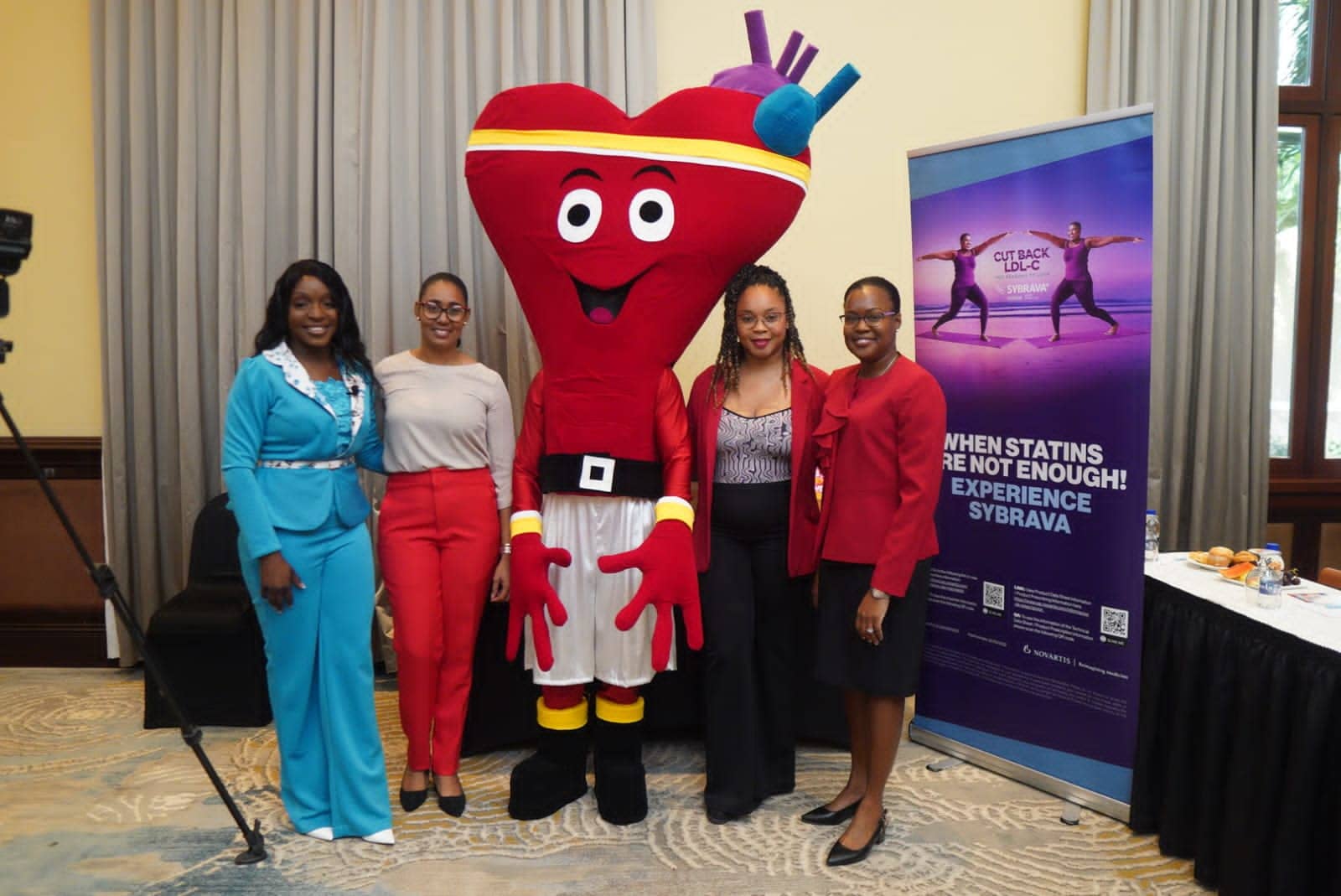
If ‘dry January’ was enthusiastically succeeded by ‘frolicking February’, you might want to pay heed to Canada’s recently updated guidelines on alcohol consumption.
The latest recommendations from our North American neighbour are that teetotalism should last all year round.
While a tipple or two a day might seem harmless enough, a new report – funded by Health Canada and published last month – advised that zero booze is the only risk-free approach.
Alcohol intake is among a number of “modifiable risk factors” for heart disease, says Consultant Cardiologist Dr Elric Winter.
The visiting specialist from Montreal was one of several experts who delivered a presentation at the fourth annual cardiac symposium organised by the Heart and Stroke Foundation. Sunday’s event took place at Sandals Grande Antigua, attended either virtually or in-person by 160 physicians, nurses and pharmacists from across the region.
Other factors within our power when it comes to avoiding heart disease – Antigua and Barbuda’s biggest killer – include cigarette smoking, obesity and lack of exercise, Dr Winter says.
“These are all things that we can address to help lower blood pressure – and they cost nothing,” he adds.
At the centre of Dr Winter’s talk on modern treatment of hypertension, also known as high blood pressure, was updated advice on the role medication plays.
“Patients with elevated blood pressure should not be put on meds initially; they should be treated with non-pharmacologic therapy such as losing weight to reach their ideal weight for their body size, height and gender, decreasing their sodium or salt intake, increasing their potassium, and increasing their physical activities,” he explains.
“They should also decrease, but preferably stop, their alcohol intake. Recommendations used to be that women could have one drink per day and men two – but now the recommendation is zero.”
Parameters on how hypertension is measured have also been altered in recent years. ‘Normal’ blood pressure is now considered to be 120/80 or less.
If the first number, known as systolic blood pressure and which measures the pressure in the arteries when the heart beats, is between 120 and 129, a person is considered to have elevated blood pressure but is not yet hypertensive. A rate of 130-139 is type one hypertension and anything above that is type two hypertension.
The reclassification has shunted more people into the ‘at-risk’ category.
In fact, Dr Winter warns, complications can arise if one’s systolic level is higher than 110.

In the United States, almost half of people (46 percent) have type one hypertension, and more than one in three (36 percent) have type two, he says.
They’re galling statistics but vital to the fight against heart disease and stroke, says the Foundation’s President and co-founder Dr Georgette Meade.
“We also discussed diabetes prevention and optimising its management,” the Consultant Cardiologist continues. “A lot of these medical conditions are due to poor diet, so we had nutritionist Charity Dublin speaking on how to advise patients with diabetes in terms of the best diet for them.
“We highlighted childhood obesity and the need to start at the level of the home and school. We want to start with children to prevent these heart-concerning projections that we are seeing such as the high prevalence of hypertension and diabetes.”
Dr Meade remains optimistic that local residents are getting the message.
“It won’t happen overnight but in terms of feedback from the general public, they are trying to change the way they eat, exercise more, monitor their salt intake and manage their stress also.
“Prevention is crucial and the time to act is now if we want to live longer, healthier lives,” Dr Meade adds.
Other speakers at Sunday’s event included Consultant Cardiologist Dr Victor Elliott, Consultant Endocrinologist Dr Rosemarie Wright-Pascoe, and Consultant Paediatrician Dr Shivon Belle-Jarvis.
The symposium was supported by a number of local businesses. Platinum sponsors were AS Bryden and Sons (Antigua) and global healthcare company Novartis.
The non-profit Heart and Stroke Foundation staged its first cardiac symposium shortly after launching in February 2020. The Foundation’s remit is to act as a voice and support system for patients and their families, raise funds, stage events, and carry out medical research.
Visit www.heartandstrokeag.org for more information.
Advertise with the mоѕt vіѕіtеd nеwѕ ѕіtе іn Antigua!
We offer fully customizable and flexible digital marketing packages.
Contact us at [email protected]
















